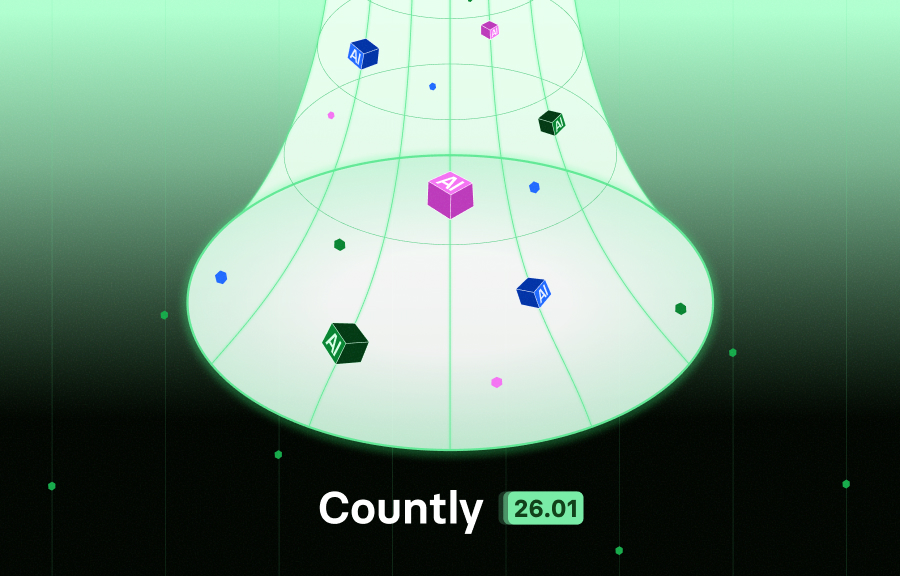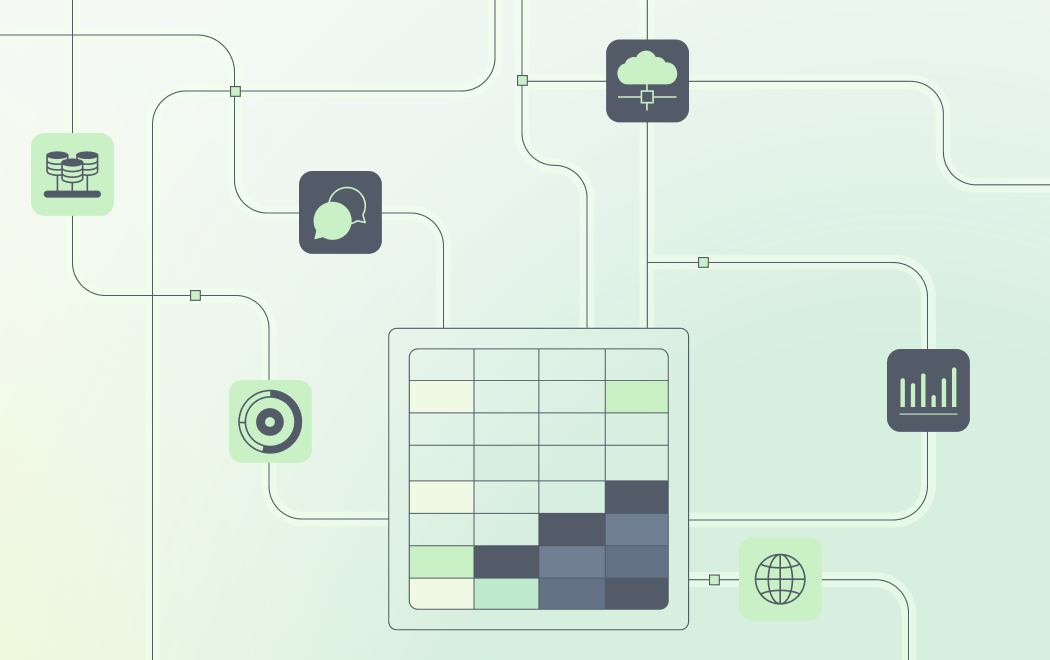Data Privacy for Kids Apps: What Parents and Developers Need to Know

Do you ever notice how children have become more glued to gadgets than any generation before? Being highly exposed to digital experiences, including educational and entertainment applications, comes with the need for more privacy protection for children's personal information. However, it’s not only the parents’ duty to keep an eye on what their kids are watching; app developers, as well, must be aware of the importance of data privacy for kids' apps and the steps they can take to ensure compliance with relevant regulations.
We have previously shared our thoughts on data privacy and its importance in product analytics. In Part 1 of this article, we'll specifically explore the significance of data privacy for children's apps, discuss key regulations, such as COPPA and GDPR-K, and provide actionable tips for parents and developers to keep children's data secure.
Later, we will discuss how Countly can be an adequate product analytics tool for the kids’ apps industry.
Why Is Data Privacy Important in Kids' Apps?
Data privacy is crucial to all digital experiences, but it takes on an even greater significance for kids' apps. Children are often unable to fully comprehend the potential consequences of sharing their personal information online, making them more vulnerable to privacy risks. Furthermore, children's personal data can be used to build profiles that may be exploited by unscrupulous individuals or organisations, making it crucial to protect this information.
For parents, protecting their children's privacy involves choosing apps that prioritise data security and adhering to best practices when managing their children's online presence. For developers, creating apps that safeguard children's data means complying with relevant regulations and implementing additional privacy measures to ensure a secure and trustworthy user experience.
Some of the most common modern risks include:
- Behavioural tracking: Apps may monitor a child’s in-app activity to tailor ads or game mechanics.
- Location sharing: Even basic features, such as finding nearby friends, can expose a child’s whereabouts if not properly safeguarded.
- Biometric data collection: Certain learning apps use voice or facial recognition, which poses significant risks if misused or inadequately secured.
- Third-party SDKs: Many free apps rely on advertising or analytics plug-ins, which can inadvertently collect more data than the developer realizes.
Parents and developers need to understand that they have to evolve as the risks do. Understanding what “data privacy” means requires securing more than only their children’s login credentials. Protecting kids’ digital footprint requires protecting all ways they interact with technology.
Key Regulations and Guidelines
Two primary regulations govern data privacy for children's apps: the Children's Online Privacy Protection Act (COPPA) in the United States and the General Data Protection Regulation for Children (GDPR-K) in the European Union. While these regulations have specific requirements, their core principles revolve around the responsible collection, use, and disclosure of children's personal information.
COPPA
COPPA was enacted in 1998 and specifically targets the online collection of personal information from children under 13 years of age. The regulation requires app developers to:
- Obtain verifiable parental consent before collecting personal information from children.
- Provide a clear and comprehensive privacy policy that explains how children's personal information is collected, used, and disclosed.
- Offer parents the option to review, modify, or delete their child's personal information.
- Retain children's personal information only for as long as necessary and ensure its secure disposal.
GDPR-K
The GDPR-K is an extension of the General Data Protection Regulation (GDPR) that focuses on protecting children's personal data. Under this regulation, app developers are required to:
- Collect only the minimum personal data necessary to provide the app's services.
- Obtain parental consent for the processing of children's personal data in most cases.
- Implement age-appropriate privacy settings and make privacy information easily understandable for children.
- Regularly assess the potential risks to children's personal data and take steps to mitigate these risks.
Beyond COPPA and GDPR-K: Other Global Regulations Worth Knowing
While COPPA (US) and GDPR-K (EU) are the best-known frameworks, they are not the only ones shaping kids’ data privacy. Developers should be aware of additional laws:
- UK Age-Appropriate Design Code (Children’s Code): Enforced by the ICO, this requires apps and online services likely to be accessed by children to provide high privacy settings by default and to avoid practices like “nudge techniques” that encourage oversharing.
- China’s Personal Information Protection Law (PIPL): Introduces strict requirements around children’s data, particularly under the age of 14.
- Brazil’s LGPD: Has special provisions for minors requiring parental consent and mandates transparency in data processing.
- California’s Age-Appropriate Design Code Act (CAADCA): Effective from 2024, it strengthens protections for children under 18, expanding on COPPA’s younger age threshold.
These laws show a global trend: regulators are holding tech companies increasingly accountable for creating safe digital spaces for minors. For developers, this means building compliance into design from day one, rather than enabling it after the fact.
Check our COPPA Compliance Checklist to see how kids’ privacy needs to be protected.
The Role of Schools and Educators
While much of the conversation around kids’ data privacy centers on parents and app makers, schools play an important role, too. With the rise of edtech platforms, teachers often introduce children to new apps for homework, classroom activities, or online collaboration.
Key considerations for schools include:
- Vetting edtech vendors: Ensuring that platforms used in classrooms comply with local regulations and don’t monetise student data.
- Training teachers: Providing educators with the knowledge to evaluate app permissions and explain privacy risks to students.
- Data minimisation in assignments: Avoiding unnecessary collection of sensitive details (e.g., requiring students to sign up with personal emails instead of school-managed accounts).
- Parental communication: Schools should keep parents informed of the apps being used and provide clear privacy policies.
By working hand in hand with parents and developers, educators can minimize risks while maximizing the educational potential of digital tools.
How Can Parents Protect Their Children’s Privacy When Using Apps?
Parents play a crucial role in protecting their children's privacy when using apps. Here are some tips to help parents safeguard their children's personal information:
- Research apps before downloading: Before allowing your child to use an app, research the app's privacy policy and practices. Look for reviews from other parents and ensure the app has a good reputation for protecting children's data.
- Use privacy settings: Make use of available privacy settings within apps to limit the collection and use of your child's personal information. Enable parental controls and restrict in-app purchases, if possible.
- Educate your child: Talk to them about the importance of protecting their personal information and the potential consequences of sharing it online. Encourage them to ask for your guidance before sharing personal details with others or within apps.
- Monitor app usage: Regularly check your child's app usage and review the permissions granted to each app. Discuss with your child why they are using specific apps and whether their personal information is being protected.
- Limit social features: Many apps include social features such as chat rooms, messaging, or friend lists. Limit your child's access to these features or disable them entirely to minimise the potential for data sharing and exposure to online risks.
- Keep devices secure: Ensure that your child's devices are password-protected and that security software is up-to-date. Regularly update apps and operating systems to protect against potential security vulnerabilities.
What Can Developers Do To Ensure More Data Privacy In Kids’ Apps?
Developers play a vital role in ensuring the safety and privacy of children's data within their apps. Here are some best practices for developers to follow:
- Familiarise yourself with regulations: Understand the requirements of COPPA, GDPR-K, and any other applicable regulations in your target markets. Ensure your app complies with these regulations and maintain documentation of your compliance efforts.
- Limit data collection: Collect only the minimum amount of personal data necessary to provide your app's services. Whenever possible, use anonymised or aggregated data instead of personally identifiable information.
- Implement robust security measures: Use encryption for data storage and transmission, and regularly test your app's security to identify and address potential vulnerabilities. Keep security protocols up-to-date and follow industry best practices.
- Be transparent: Provide a clear and comprehensive privacy policy easily accessible within your app. Clearly explain how you collect, use, and disclose children's personal information and obtain verifiable parental consent when required.
- Offer parental control options: Allow parents to review, modify, or delete their child's personal information and give them the ability to restrict access to certain app features, such as in-app purchases or social interactions.
- Monitor user-generated content: If your app includes user-generated content, implement monitoring and moderation tools to help ensure that inappropriate content or personal information is not shared within the app.
Data privacy for kids' apps is a shared responsibility between parents and developers. By understanding and adhering to relevant regulations, implementing strong security measures, and promoting transparency and communication, parents and developers can work together to create a safe and secure online environment for children.
By following these guidelines and prioritising children's data privacy, parents can confidently allow their children to explore and learn through digital experiences. Developers can build trust and foster a loyal user base while maintaining compliance with data privacy regulations.
In Part 2 of this article, we will walk you through the capabilities of Countly within the Kids' Gaming Industry.





